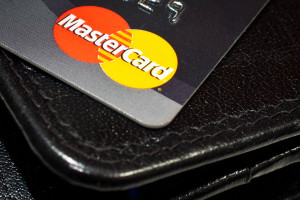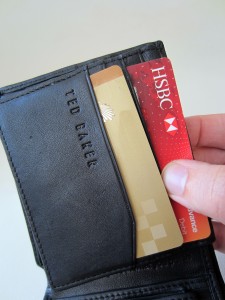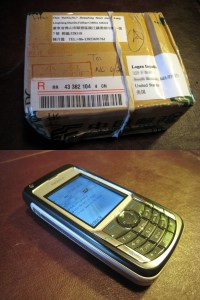November 11th, 2024 by Elma Jane
MasterCard is releasing a new program for its corporate clients that allows them to closely monitor and control their travel expenses online. The program, known as Travel Controller, lets businesses track all of their individual travel accounts under one system, giving owners a chance to reduce those travel expenses.
Typically, travel and entertainment is the second-largest controllable expense after salaries and benefits, and yet companies worldwide are overwhelmed with huge amounts of travel spend data requiring expense reconciliation said, head of travel and entertainment at MasterCard. “With minimal upfront investment and systems integration, Travel Controller gives companies the opportunity to remedy this pain point.
This program is somewhat an extension of the Smart Data service that MasterCard launched in July. This program lets company treasurers analyze business-wide spending by assessing big data from all employees.
MasterCard’s Travel Controller is not scheduled to be on the market until early 2014, but it is currently being used as a pilot at a select group of banks. With this program, business owners can gain a better understanding of how their travel expenses are being spent. If an employee is spending more than the amount dictated by the company’s travel policy, the Travel Controller will show that information.
Posted in Credit card Processing, Travel Agency Agents, Visa MasterCard American Express Tagged with: accounts, benefits, control, corporate, entertainment, expenses, investment, market, MasterCard, online, pilot, reconcilliation, remedy, salaries, systems integration, travel, travel controller, upfront
November 8th, 2013 by Elma Jane
If you want to make the most out of your shopping adventures, you need to have a credit card that helps you save money. The question is, which option is better for you? Some people automatically think about store credit cards, and others go for cash back credit cards. Before you apply for a card, assess which type of card would be more beneficial for your personal needs.
Cash Back Credit Cards
The main perk to having a cash back credit card is the fact that you can use it anywhere. It still acts as a traditional credit card. The only difference is that you get rewards from the money you spend on it. The average cash back credit card offers 1% cash back on all purchases. Some may also pay an additional 2% to 5% cash back on select purchases made with the card. Example, the Citi ThankYou Preferred Card offers 2 reward points per $1 spent on dining and entertainment. Blue Cash Everyday card from American Express offers 3% cash back at supermarkets, 2% cash back at gas stations and 1% on all other purchases. You could earn a great deal of your money if you choose the right cash back card and use it correctly.
The problem with cash back credit cards is that the rewards structure can sometimes be confusing. The Discover It Card features an attractive rewards program, but its 5% cash back offer changes every three months. It may be on home improvement purchases during one quarter, but during another quarter, it may be applicable on purchases at gas stations and for holiday shopping. You have to keep up with the rewards calendar to get the most out of your credit card. You also have to consider any fees associated with your credit card. Some cash back cards on the market have an annual fee, and many have a slightly higher interest rate than the average card. Review the terms of any card you are considering for so you can pick the perfect one for you.
Store Credit Cards
Store credit cards are usually easy to apply for and just as easy to obtain. Some of them can be used like regular credit cards, and others have to be used at a specific store. For instance, the traditional Walmart credit card can only be used at Walmart, but the Walmart Discover card can be used anywhere Discover is accepted. You need to know this about your card before applying for it. Many people get a store credit card because they receive some type of introductory offer when they apply for one. You might be able to save 10-15% off your initial purchase, or you might get a certain amount of cash back after making your first purchase. These offers are designed to lure you into getting a card, even though you may never use it again. What you may not realize in the euphoria of the introductory offer is the very high interest rate you typically have on a store credit card.
When you start looking at store credit cards, consider what kind of rewards you can get and how those rewards are accumulated. Do they only come from purchases at that store, or do they come from any transaction? Are you required to use rewards in the store, or can you use them online? Does the card have an annual fee? You must go through this type of analysis before deciding if a store credit card is worth getting.
Are Cash Back Credit Cards Better Than Store Credit Cards?
In our opinion, yes. This isn’t because we’re biased towards cash back cards. We just like the idea that you can earn rewards wherever you make a transaction. You aren’t limited to one store, either in the way you spend money or the way you collect your rewards. In addition, store cards usually have a higher interest rate. With that said, there are people who benefit from store credit cards because they shop at those stores all the time. If you spend thousands of dollars a year at Lowe’s for your construction company, a Lowe’s credit card may provide substantial savings for your business.
Don’t get overly excited when you reach the checkout counter. That one-time savings on a store credit card may not be worth it in the end. Think over your shopping habits and see if a cash back credit card is more suited for your needs. If so, you have plenty of them to choose from.
Posted in Electronic Payments, Financial Services, Gift & Loyalty Card Processing, Visa MasterCard American Express Tagged with: %, accumulated, American Express, annual, assesses, average, beneficial, calendar, cash, cash back, checkout, credit cards, dining, Discover, earn, entertainment, fee, improvement, interest, lowe's, market, money, online, pay, points, preferred, purchases, quarter, rate, rewards, savings, shopping, store, traditional, transaction, walmart
October 11th, 2013 by Elma Jane
(Moto) Mail Order/Telephone Order Merchant – In the realm of credit card processing is defined as a merchant who manually keys in over 50% of their transactions and an Internet Merchant is one who accepts transactions over the Internet via an E-Commerce store with an online gateway or who submits transactions manually through a Virtual Terminal.
Qualified Transaction Conditions (For MOTO/Internet merchants the Mid-Qualified Rate is essentially the Qualified rate as these merchants never swipe a credit card through a terminal.)
One electronic authorization request is made per transaction and the transaction date is equal to the shipping date. The authorization response data must also be included in the settled transaction.
Additional data (sales tax and customer code) is required in the settled transaction on all commercial (business) cards at non-Travel & Entertainment (T&E) locations.
The authorization request message must include Address Verification Service (AVS), which verifies the street address and the zip code of the card holder. NOTE: The only way this happens is if your software is set up to do this, or, if you are using a terminal, then if you capture the AVS information at the time of keying in your transaction.
The settled transaction amount must equal the authorized amount.
The settled transaction must include the business’s customer service telephone number, order number, and total authorized amount.
The transaction is electronically deposited (batch transmitted) on or 1 day after authorization date.
The transaction/shipping date must be within 7 calendar days of authorization date.
Non-Qualified Transaction Conditions
One or more of the Qualified or Partially Qualified conditions were not met.
Commercial Card without the additional data.
The transaction was not electronically authorized or the authorization response data was not included in the settled transaction.
The transaction was electronically deposited (batch transmitted) greater than 1 day from transaction/shipping/authorization date, or:
The VISA Infinite card was accepted.
Commercial Card Additional Data
MasterCard
Corporate Data Rate II (Purchasing cards): Sales Tax and customer Code (supplied by cardholder at point of sale) Corporate Data Rate II (Business and Corporate cards): Sales Tax International Corporate Purchasing Data Rate II: Sales Tax and Customer Code (supplied by cardholder at point of sale)
The following information must also be provided: Merchant’s Federal Tax ID; Merchant Incorporation Status; and Owner’s full name if the merchant is a sole proprietor.
Visa
Purchasing cards: Sales Tax and Customer Code (supplied by cardholder at point of sale) Corporate and Business cards: Sales Tax
Posted in Credit card Processing, e-commerce & m-commerce, Electronic Payments, Internet Payment Gateway, Mail Order Telephone Order Tagged with: address verification service, authorization, avs, batch, business, corporate, credit card processing, data, e-commerce, electronically, entertainment, fax order, gateway, internet, internet merchant, keying, mail order, moto, phone order, qualified, settle, store, telephone order, transactions, transmit, travel, virtual terminal


